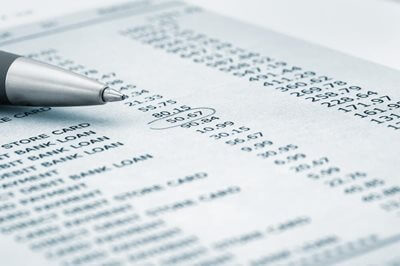What is a Bank Statement & Why Review it?
If you’ve recently opened a checking or savings account, you may be wondering how to keep track of everything. How do you check to make sure transactions are correctly documented in your checking account? How do you monitor for fraud or keep track of spending and saving? Where can you see the interest you’ve accrued in your savings account? For answers, this is where the bank statement comes in.

A bank statement is a document that summarizes the activity on your bank account over a specific period of time. It shows all your deposits, withdrawals, interest accrued, opening balance, closing balance and account information.
Understanding and reviewing your bank statements is essential for maintaining financial confidence and security. We’ve assembled helpful answers to some of the most common questions about bank statements.
What does a bank statement look like?
Regardless of what bank they’re from, most bank statements look fairly similar. They typically include an overview of the account and bank, followed by an account summary and a detailed breakdown of activity over a specific period. The bank statement usually covers a period of one month, but it can also be quarterly. It’s important to know what a bank statement looks like and how to read one so you don’t miss any critical information.
Regardless of what bank you use, you can expect to see the following on your bank statements.
- Overview of your account, which will include the following information:
- Account name and number
- Your bank’s name and address
- Your bank’s customer service phone number
- Your name and address
- Statement period
- Your account summary, which includes:
- Starting and ending balances
- Interest accrued
- Overdraft information
- Account activity, which is a summary of the transactions you’ve made during the month, such as:
- Deposits (checks, direct deposits, reimbursements, etc.)
- Withdrawals (recurring payments, ATM withdrawals, auto loan payments, etc.)
How do I get a bank statement?
Many people choose to receive their bank statements electronically rather than by mail to preserve paper, keep bank statements secure, and stay better organized. Once you open your new
checking or savings account, you may need to decide how to get a bank statement – either by mail or electronically. Most banks allow you to opt in to paperless delivery. When you log into your bank account online, you’ll probably see a menu item for “statements.” There you’ll be able to review your current and previous bank statements and typically have the option to download them to your computer or mobile device.
How long should I keep my bank statement?
While you should review your bank statement every month, how long you should keep your bank statements is up to personal preference. Most people keep their bank statements for a year; anything tax-related, such as proof of charitable donations, should be kept for at least three years. If you prefer paper statements, keep them in a secure, confidential place, and make sure to shred them when you’re ready to get rid of them. Remember, you can always log into your bank account to review previous bank statements.
Why do I need to review my bank statement?
Your bank statement is the best way to keep track of your funds in your bank accounts. You’ll want to review your bank statements every month to monitor your spending and current balance. Reviewing your bank statement monthly is also the best way to catch potentially fraudulent activity on your account. If you’re questioning what a charge is in your bank statement, or if something doesn’t look correct, contact your bank as soon as possible. The customer service number is usually located somewhere on the statement.
Besides just reviewing your transactions and balances every month, there are a number of other reasons why you’ll want to access your bank statements:
- They can help you budget: Your bank statement is a great tool to help you build a budget as it details every deposit and withdrawal on the account.
- They may be requested as part of a loan application: Banks often require bank statements as proof of income and employment when you apply for a mortgage, auto loan, student loan, or other type of personal loan.
- They may help you rent an apartment: When applying to rent an apartment, leasing offices require a few prior bank statements as proof of income.
- They can help you qualify for Medicaid: Because Medicaid is an income-based program, you’ll need records proving your income.
If you have questions about accessing your bank statement or want to learn more, First National Bank and Trust is here to help.
Contact us or
find a branch near you to start a conversation.